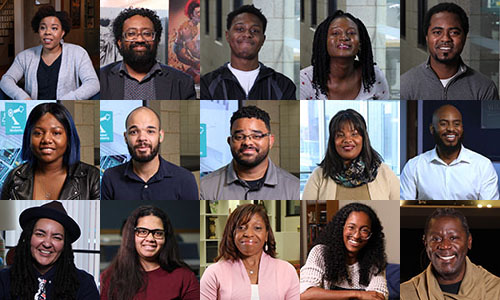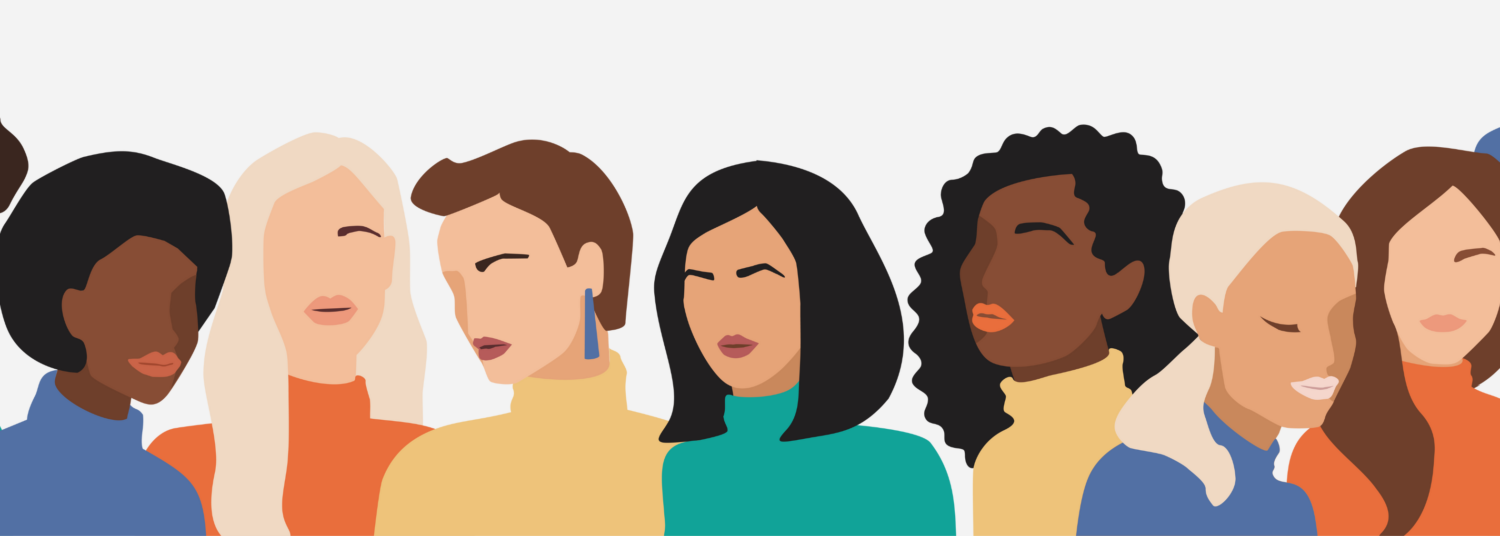There is an African proverb that says, “It takes a village to raise a child.” To create healthy and safe environments to succeed and thrive for deaf youth, it takes more than a village — it takes an entire community of organizations working together.
In recognition of the power of community, the National Deaf Center on Postsecondary Outcomes (NDC) reached out to the National Black Deaf Advocates (NBDA) to learn and share more about the work they do.
NBDA’s work with Black deaf youth
NBDA has been part of the village uplifting Black deaf people for almost 40 years through its advocacy efforts for equal access to education, employment and social services. Organized and operated solely by volunteers, NBDA serves the community with a range of programming, including programs designed to support deaf youth.
The Collegiate Black Deaf Student Leadership Institute and Youth Empowerment Summit (Y.E.S!) are opportunities for youth to participate in week long programming that coincides with the biennial NBDA national conference.
“The Leadership Institute, CBDSLI, was important in the development of my identity as a Black deaf person,” said Arlene Ngalle, Program Specialist at NDC. “By participating in workshops, I gained knowledge and skills that benefited me both in college and after. Most importantly, I was introduced to Black deaf role models and other Black deaf peers.”
The current president, Isidore Niyongabo, shared that NBDA hopes to expand upon programming for youth, but as a non-profit, volunteer operated organization, they are reliant on the valuable contributions of donors.
To learn more about leadership training for Black deaf college students and youth, visit www.nbda.org/content/college-youth or email [email protected] and [email protected].
Research reflects the depth of the issues
Data analyses by NDC show that deaf people have fewer opportunities to complete their education and get jobs than hearing people, and these disparities are wider among BIPOC deaf people, deafdisabled people, and deafblind people.
The Postsecondary Achievement of Black Deaf People in the United States (2019) report unveiled that Black deaf people are underemployed and underpaid. Systemic oppressions are compounded for deaf people with multiple intersecting identities. This results in traumatic encounters, disproportionate access to opportunities, and exclusion.
But data reports only give us one perspective of the inequities. NDC has many powerful community stories shared by Black deaf people and youth role models, that provide deeper insights and their lived experience.
NBDA identifies barriers and calls to action
When asked about the existing barriers for deaf students and their call to action to better support Black deaf youth, NBDA President Niyongabo shared:
-
Lack of representation of Black deaf people and role models in high school and college settings. To fill this gap, NBDA created opportunities for Black deaf youth to attend and participate in programming at the biannual conferences.
-
Negative attitudes and biases and lack of cultural competency. Those attitudes create barriers for Black deaf people and impact advancement in both education and employment settings. For example, some vocational rehabilitation counselors do not offer the same motivation and resources for Black deaf youth like they do for their non-BIPOC peers.
The call to action at NBDA is a commitment to anti-racist initiatives, such as inclusive policies and practices and ongoing training on equity, diversity, and inclusion for staff. Simultaneously, schools need to commit to hiring more Black deaf teachers.
NBDA will work with organizations ready to accept the call to action.
”It will take a collective effort to dismantle systematic racism that we have inherited both in the educational system, as well as rehabilitation services,” Niyongabo said.
NBDA is available to provide guidance, training, and resources that may help prepare Black deaf youth for a better future, and ensure they have equitable encouragement and support like their peers. NBDA has over 35 active local chapters in your communities and are seeking opportunities to create partnerships with schools, vocational rehabilitation agencies, and other organizations serving deaf people in the community.
Other community resources
Community organizations or high school clubs can have a significant role in youth development. NBDA is only one example of many community resources available. NDC invites you to join us in efforts to engage communities as a part of your work, particularly communities who have been historically marginalized. Extend an invitation, connect, and collaborate with them.
Black Deaf Communities
Indigenous Deaf Communities
Latinx Deaf Communities
-
Alma de Muxeristas
Asian Deaf Communities
-
Asian Pacific Islander Association
DeafBlind Communities
DeafDisabled Communities
-
“Hello, I’m Meredith Burke” (Burke, 2019)
-
Montage of DeafDisabled Stories (NAD Deaf Culture & History Section)
Queer Deaf Communities
Deaf Centered Organizations
Additional resources
The list above, while not an exhaustive list, will get you started. If you are looking for additional suggestions or resources in your area, please contact us at [email protected].
NDC offers many ways to improve your engagement with community partners:
-
Take the Course: Engaging Deaf Communities for Systems Change, a new self-paced professional development course, is now available in our free online learning library.
-
Use evidence-based strategies: Leading the Way: Eight Strategies for Deaf Communities to Enact System Change is a resource based on what we learned from community conversations through the Engage for Change | local initiative.
-
Learn from other community members: For Deaf People, By Deaf People: Centering Deaf People in Systems Change was a panel discussion hosted online, which featured local deaf leaders, who shared their experiences with EFC | local projects in their communities, discussed the importance of deaf-led systemic change, and explained how they center deaf people in their work.









